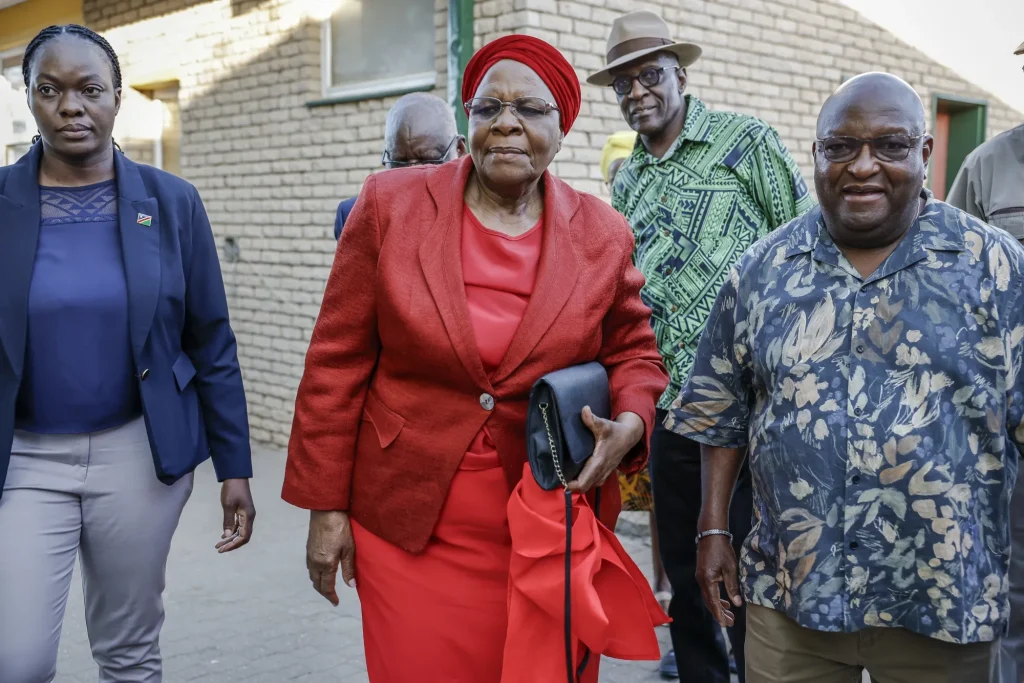Namibia’s Netumbo Nandi-Ndaitwah has been elected as the country’s first woman president. The country’s ruling SWAPO party was declared winner on Tuesday after last week’s disputed elections ushering in the southern African country’s first woman president.
The 72-year-old Ndaitwah took just over 57 per cent of ballots, followed by the candidate for the main opposition Independent Patriots for Change (IPC), with 25.5 per cent, The Electoral Commission of Namibia (ECN) announced on Tuesday.
The ECN said that of the nearly 1.5 million registered voters in the sparsely populated country, nearly 77 per cent had cast ballots in the presidential vote.
“The Namibian nation has voted for peace and stability,” Nandi-Ndaitwah said after being declared president-elect.
Opposition parties have rejected the results after the election was marred by technical problems, including shortages of ballot papers and other issues, causing election officials to extend voting until Saturday.

Long queues meant that some voters gave up on the first voting day after waiting up to 12 hours. The IPC said this was a deliberate attempt to frustrate voters and would not accept the results.
The November 27 election tested SWAPO’s 34-year grip on power, with the IPC attracting some support from younger generations.
Youth unemployment, enduring inequalities, and the emergence of a generation born after independence are challenging support for SWAPO, which has ruled since 1990.
Namibia is a major uranium and diamond exporter. Still, analysts say not many of its nearly three million people have benefited from that wealth in terms of improved infrastructure and job opportunities.
Unemployment among 15- to 34-year-olds is estimated at 46 per cent, according to the latest official figures from 2018, almost triple the national average.


